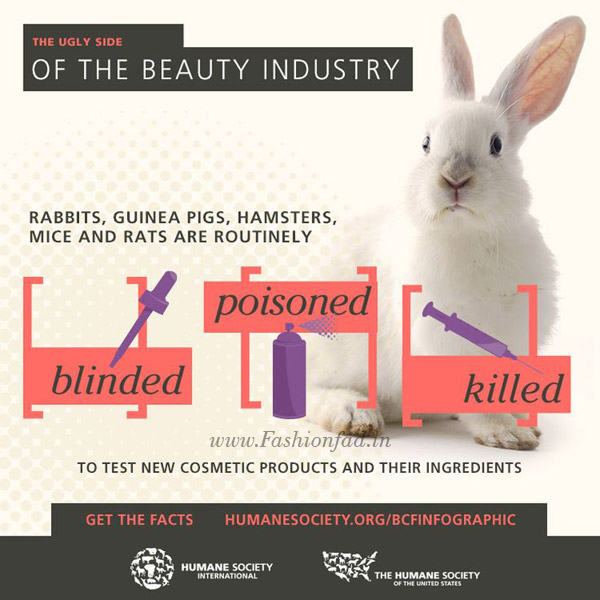Fluffy white rabbits jump excitedly around their cages, while they are waiting their turn to be tested on. Cosmetics such as moisturiser will be dripped into their eyes and slathered onto shaved backs. This will often leave them in pain and may render them blind. Afterwards, they are usually unceremoniously killed.

But while animal testing was banned in the UK in 1997 and in the EU in 2009, some of Britain’s most popular brands are still funding testing on animals.
Incredible as it seems, the price brands such as Clinique, Lancome, Kiehl’s, L’Oreal Paris, Olay, Nivea, Mac, La Mer, Dior, Caudalie, Benefit and many more pay to sell their products in China.
And public feeling against animal testing remains strong. In 2012, after an outcry, cosmetics brand Urban Decay backtracked on plans to move into China, saying ‘we did not feel we could comply with current regulations in China and remain true to our principles’. It’s little wonder, given the stomach-churning accounts of animal testing in China.
Mostly, it’s rats and mice which are tested on, but rabbits and guinea pigs are, too. Yet how are British consumers to avoid accidentally buying into a brand which allows its products to be tested on animals? Sadly, it’s not straightforward.
Almost 200 of the world’s biggest beauty brands are owned by seven conglomerates. And each has brands in China. Take L’Oreal, for example. While some of its brands, such as Urban Decay and haircare brand Pureology, carry a cruelty-free logo, it also owns Maybelline, Kerastase, La Roche-Posay, Lancome and Kiehl’s, all of which are sold in China.








